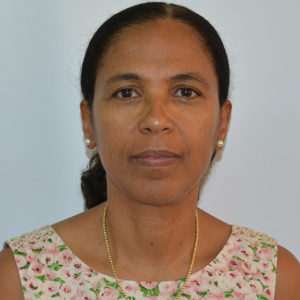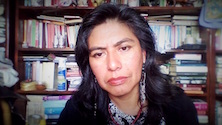Women's Roundtable
Stakeholders Roundtables Venue: National Library Casa De La Cultura- Caroline Moser University Of Manchester (UK) United Kingdom of Great Britain and Northern Ireland

- Dr. Eunice Andrade da Silva Spencer Lopes Minister Of Infrastructure Land Management And Housing Cabo Verde

- Elizabeth Rivera Garcia Member Mujeres Indigenas De Cayambe Ecuador

- Esther Mwaura FOUNDER Kenya

- Geeta Menon Stree Jagruti Samiti (INDIA)

- Hon. Sarah Masaki Minister Of Lands Urban Housing And Physical Planning Of Muranga County In Kenya County Government Of Muranga Kenya

- Mikael Atterhög Senior Programme Specialist Swedish International Development Cooperation Agency (Sida) Sweden

- Olga Segovia Architect Red Mujer Y Habitat America Latina Chile

- Prabha Khosla Member/Principal Prabha Khosla Consulting Canada

- Relinda Sosa Presidenta CONFEDERACION NACIONAL DE MUJERES ORGANIZADAS POR LA VIDA Y EL DESARROLLO INTEGRAL – CONAMOVIDI Peru

Gender Responsive Management and Monitoring of Cities and Human Settlements
Today, many developing countries are experiencing rapid urbanization, yet gender inequalities -- in decision-making at all levels, in access to and control over resources and employment opportunities, as well as in access to social goods, public spaces, and essential services - continue to threaten the realization of the New Urban Agenda. Women and girls still benefit less from urbanization than men and boys. These inequalities are more amplified in urban slums with women, youth, and children disproportionately shouldering the burden of inequality. Despite the persistent challenges, cities can be planned, developed, managed, and governed for the benefit of the entire population. This will call for gender-responsive urban planning, effective land use, as well as the active involvement of stakeholders, including women, throughout the entire processes. Participation in sustainable urban growth and development must be grounded in diversity that guarantees the inclusion of historically marginalized groups, including women, youth, persons with disability, grassroots, refugees, migrants, farmers, and indigenous communities. Successful urbanization depends on state actors and developers centrally recognizing and systematically engaging organized groups of urban communities must be recognized and systematically engaged by state and development actors as key players in the creation of gender-just and sustainable cities.
Objectives of the Roundtable
- Identify the most efficient ways and tools to implement and monitor the implementantion of women’s rights and gender inequality in the New Urban Agenda.
- Demonstrate what is gender-responsive implementation and monitoring of the New Urban Agenda and the intersecting global frameworks.
- Emphasize on generation of disaggregated data and meaningful and effecitive engagement as a prerequisite for monitoring progress.
- Enhance the understanding of the potential risk/costs of gender exclusivity (economical, spatial, political and social) in the implementation of the New Urban Agenda.
Guiding Questions
- What are some specific strategies and initiatives that implementation actors of the New Urban Agenda should consider in order to prioritize women’s rights and gender equality?
- What are examples of gender-responsive management and urban planning can you share that could benefit the implementation of the New Urban Agenda?
- What should the government do to provide essential services that women need? What will make these services gender-responsive?
- How should the government guarantee access to natural resources to ensure that women and their communities benefit?
- Can you describe one innovation in providing services for the needs of women and men refugees or Internal Displaced Persons that has surfaced from data collection?
- What is the role of data and monitoring in ensuring women’s rights and gender equality? What is gender disaggregated data, and why it is important to collect it in order to strengthen the implementation of the New Urban Agenda?
Roundtable Follow Up
- How do you propose to monitor the outcomes of this session in order to report back on progress at the 9th Session of the World Urban Forum (2018, Kuala Lumpur, Malaysia)?
